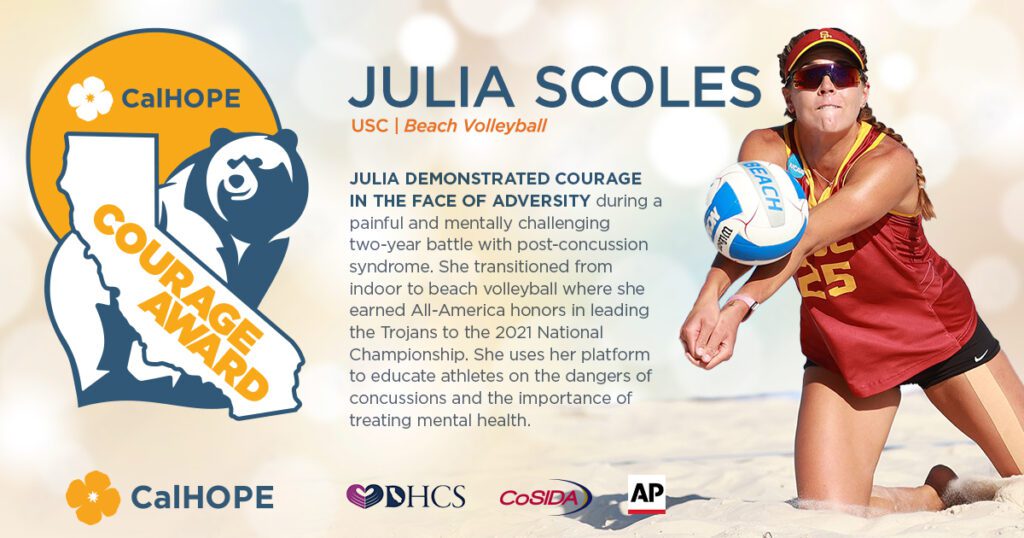Julia Scoles is a graduate student at USC’s Marshall School of Business, pursuing a Master of Science degree in Entrepreneurship and Innovation, and a member of the women’s beach volleyball team. At the start of her sophomore season at the University of North Carolina in 2017, Scoles, a Mooresville, North Carolina native, suffered three serious concussions that resulted in a myriad of health issues, including hyponatremia, vision problems, heart problems, spinal complications, and more. These post-concussion syndrome ailments and the accompanying mental trauma forced her to miss her sophomore season, retire from indoor volleyball, and transfer to the University of Hawaii to play beach volleyball. Guided by her faith, she overcame those physical and mental obstacles to thrive on the beach, where she compiled an impressive 36-8 record, and in the classroom, where she completed her undergraduate degree.
In fall 2020, Scoles transferred to USC, where she had to deal with the challenges of COVID-19 as she established a new life, practiced with her new team, and bonded with new teammates. Again, by relying upon her faith, she adapted well, earning All-American honors and helping the Trojans win the 2021 NCAA championship. She uses her experiences with head injuries to educate others about the dangers associated with concussions in athletics and the mental health challenges associated with head injuries. Additionally, she shares her experience as a mentor with the Concussion Legacy Foundation.
“The concussions seemed to take everything from me. All I once knew about myself was stripped away. I lost my joyful personality and my identity as a student, an athlete, and a teammate. I was in the lowest emotional state,” says Scoles.
“Adversity is a teacher, but often we won’t understand until we’re on the other side. The lessons I learned from my injuries and my faith in Christ served me well when I transferred to USC during COVID-19. When the circumstances are outside of your control, you must focus on what you can control. For me, that was intentionally connecting with friends through technology, making sure I was doing home workouts every day, journaling, and making nutritious meals. When the world stops, you don’t have to. Making a conscious effort to reframe the situation, find the silver lining, and make the best use of your time will not only serve you, but those around you. Our actions affect others, and I want to be a light to everyone I encounter. During a year pronounced by isolation, I chose to make the interactions we do have count.”


